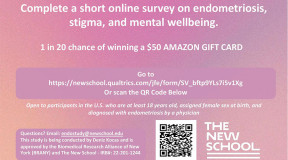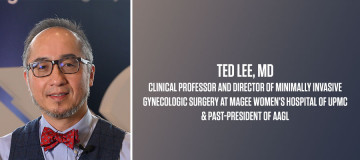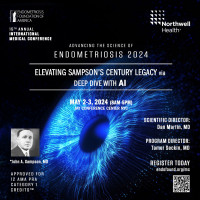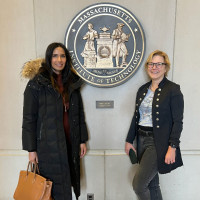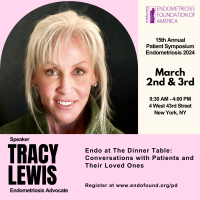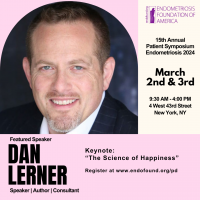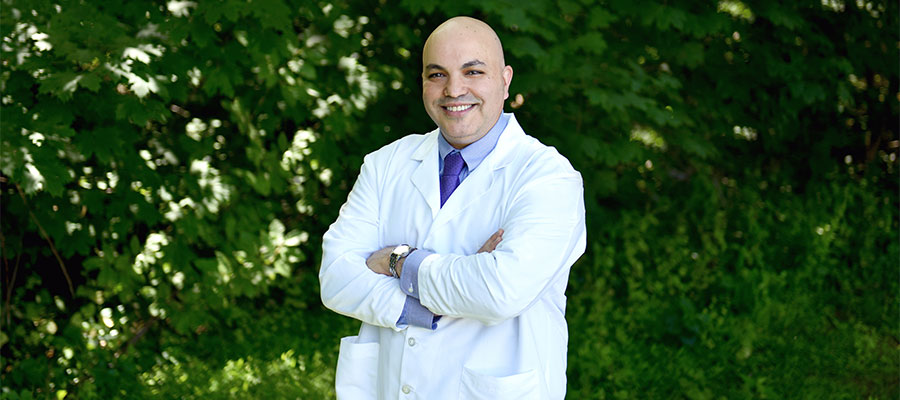
One in five women in the U.S. is infertile, defined by the Centers for Disease Control and Prevention as when a pregnancy does not occur after at least a year of unprotected sex. And one of the leading causes of infertility is endometriosis.
This week is National Infertility Awareness Week, founded in 1989 to educate the public, dispel myths, and influence lawmakers to create policies that help people have children.
“Every April, National Infertility Awareness Week provides a platform for spotlighting awareness surrounding infertility and the struggles individuals face in building their families,” said Dr. Tomer Singer, associate professor at the Donald and Barbara Zucker School of Medicine at Hofstra/Northwell and medical director at Shady Grove Fertility in New York. “It reminds us of the emotional and physical toll that infertility can have on individuals and the need for access to education, support, and affordable treatments.”
Dr. Singer educated attendees of EndoFound’s annual Patient Day at Lenox Hill Hospital last month. He discussed his work to help families grow and how more women than ever are freezing their eggs, including many who have endometriosis.
“When I started the reproductive endocrinology department at Lenox Hill in 2012, most of the patients I saw were 41 or 42 years old and single who just wanted to freeze their eggs and wait for the right partner,” he said. “But over the past 10 years, there has been a significant increase in public education about infertility. With the rise of social media and online platforms, people are increasingly willing to shed light on their experiences with infertility, reducing the stigma associated with it. In 2012, we saw one or two (patients) a month. Now we see three or four a day, and they’re younger.”
Dr. Singer said a person’s fertility begins declining in her late 20s. It accelerates from her mid-30s until she’s 45, and the rates of miscarriages and genetic abnormalities increase with age.
Along with age, infertility can be caused or accelerated by smoking, chemical radiation exposure, surgeries, genetics, and overall health. Endometriosis can cause infertility by distorting the pelvic anatomy or blocking the fallopian tubes and affecting the integrity of the ovaries, which can prevent or disrupt a healthy fertilization process. According to the National Institute of Health, “about 25 to 50% of infertile women have endometriosis, and 30 to 50% of women with endometriosis are infertile.”
“Endometriosis in and of itself without any treatment is just deteriorating the egg quality,” Dr. Singer said. “We need to be educating our general OBGYNs and primary care physicians to address those things.”
Dr. Singer said egg freezing has been around for about 40 years. The goal is to keep a woman’s fertility potential at its current state by stimulating and developing unused eggs that are then removed from the ovaries and frozen for a later time. The process begins with a blood test and ultrasound to make sure there are no endometriomas and access to the ovaries is clear. The ovaries are then stimulated with injectable hormones for 10 to 12 days before they are retrieved by a doctor and stored in liquid nitrogen.
Since not every egg will result in pregnancy, and to achieve an 80 percent pregnancy rate, Dr. Singer said 15 to 20 mature eggs are needed for women 37 and younger with a normal ovarian reserve, 25 to 30 eggs for women 38 or 39, and well over 30 eggs for women who are 40 to 42.
While women and their partners are becoming more educated about egg freezing, the cost can still be prohibitive. Dr. Singer said insurance may cover some expenses but not others. The egg freezing cycle could range from $5,000 to $12,000, medication from $2,000 to $6,000, and egg storage fees from $60 to $90 a month.
He actively advocates for insurance companies not just to cover the costs of egg freezing, but also the costs of treatments for the diseases that cause infertility, specifically endometriosis.
“Endometriosis should be looked at just like any other disease and covered under insurance. This week I had four peer-to-peer consultations with insurance companies explaining to them how detrimental this disease is to the patient,” Dr. Singer said. “Your insurance policy will say egg freezing is covered for medical indication, which is a code word for cancer. I want to include endometriosis in that code word. That’s one of the things we should focus on so that women who struggle with endometriosis and the emotional, physical, and financial costs associated with it will have access to and be able to afford this empowering treatment.”
Dr. Singer is proud of the strides made, but he noted that continued education—particularly concerning access to affordable treatments, emotional support, and understanding the impact of age, lifestyle, and medical conditions on infertility—is needed.
“National Infertility Awareness Week serves as a reminder of the work that needs to be done as we continue to advocate for these rights,” he said



